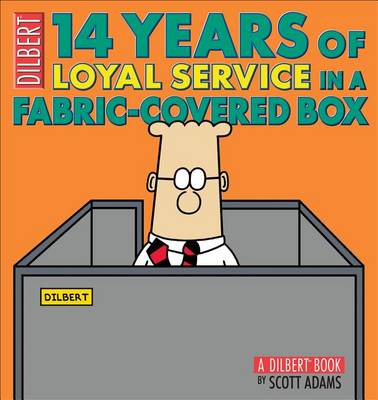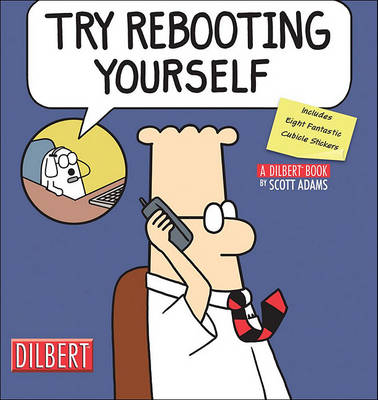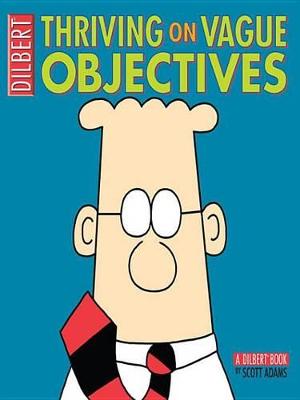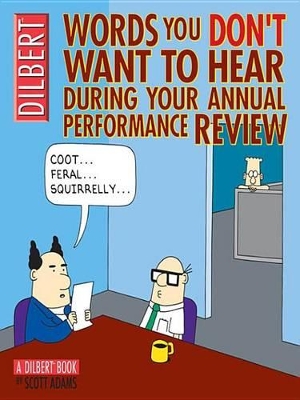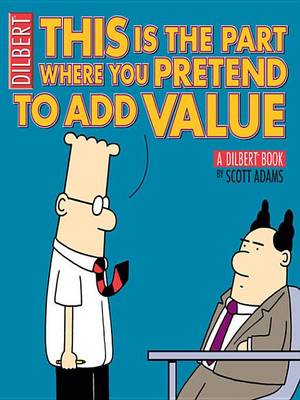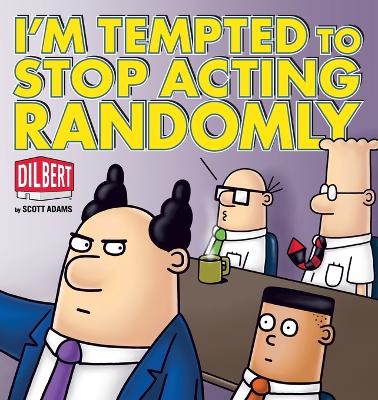Dilbert Book Collections Graphi
6 total works
Maybe, just maybe, the reason Scott Adams is able to so completely and utterly skewer the absurdities of the modern workplace is that deep down he really enjoyed his many years as a cubicle dweller. Perhaps his comic strip Dilbert is nothing more than a cleverly disguised 17-year-long love letter to corporate America.
And maybe, just maybe, monkeys will fly out of Donald Trump's butt.
In Try Rebooting Yourself, AMP's 28th Dilbert collection, the world's most dysfunctional office family is back and doing what it does best. Wally adroitly steers clear of new assignments-and perfects his work grimace. The Pointy-Haired Boss (PHB) thinks of new ways to demoralize and disenfranchise his employees. (As part of a new strategy to make the pension plan solvent, he reminds employees Smoking is cool.) Dogbert continues his lucrative consulting business. And Dilbert, alas, he soldiers and smolders on, searching for intelligent life in the corporate universe-and maybe, just maybe, a little action. (Fat chance.)
This time out, the gang is joined by a host of odd (but strangely familiar) guest characters including the clueless Hammerhead Bob, and Petricia, the PHB's fawning but ferocious sycophant. All office workers may now nod knowingly.
""I think that idiot bosses are timeless, and as long as there are annoying people in the world, I won't run out of material.""-Scott Adams
Dilbert and the gang are back for this 26th collection, Thriving on Vague Objectives.
Adams has his finger on the pulse of cubicle dwellers across the globe. No one delivers more laughs or captures the reality of the 9 to 5 worker better than Dilbert, Dogbert, Catbert, and a cast of stupefying office stereotypes-which is why there are millions of fans of the Dilbert comic strip.
Dilbert is a techno-man stuck in a dead-end job (sound familiar?). Power-mad Dogbert strives to take over the world and enslave the humans. The most intelligent person in Dilbert's world is his trash collector, who knows everything about everything.
Artist and creator Scott Adams started Dilbert as a doodle when he worked as a bank teller. He continued doodling when he was upgraded to a cubicle for a major telecommunications company. His boss (no telling if he was pointy-haired or not) suggested the name Dilbert. Adams is so dead-on accurate in his depictions of office life that he has been accused of spying on Corporate America.
Words You Don't Want to Hear During Your Annual Performance Review
by Scott Adams
More This Is the Part Where You Pretend to Add Value
Scott Adams offers up his this Dilbert collection exploring themes of sloth and corporate indifference. The arbitrary, unspoken rules of interoffice emailing, the random policy generator, and the knowledge that management has indeed given up ever trying to win an award for best place to work all combine to make life in the Dilbert workplace as demoralizing as real life.
Dilbert navigates through the same corporate 9 to 5 existence in which his readers physically dwell. Dilbert, Dogbert, the boss, Wally, Alice, and Catbert tackle corporate indolence, avarice, and pretense one strip at a time, from the neighboring cubicle whistler to the project naysayer to the guy who's always just too busy to lend a hand.
Following his 20th anniversary hit, Dilbert 2.0, Scott Adams returns with another Dilbert collection of funny page favorites inside I'm Tempted to Stop Acting Randomly.
Inside this collection, Dilbert and his team "flail around in futility" while the corporate bosses "forget what it's like to be one of the little people." From CEO Dogbert's speculative use of the company jet for personal vacationing to the flawed planning of a new electrically compromised data center, Dilbert exemplifies the randomness and annoyances associated with corporate cubicle culture.
